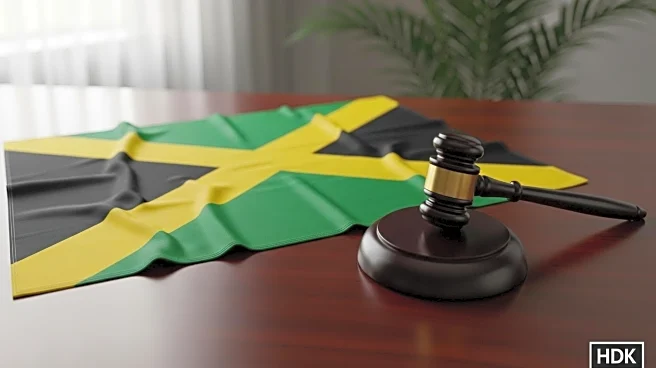What's Happening?
Jamaican Prime Minister Andrew Holness has been elected to a third term following a closely contested election. The Jamaica Labor Party, led by Holness, secured at least 34 seats, while the opposition People's National Party, led by Mark Golding, won 29 seats. Golding conceded the election, acknowledging Holness's victory. The election took place amid concerns over corruption, inequity, and economic challenges on the island. Voter turnout was reported at 38.8%, slightly higher than the previous election during the pandemic. Holness's administration has been credited with a significant reduction in crime, particularly a 43% drop in killings this year, attributed to increased firearm seizures and enhanced security measures.
Why It's Important?
The re-election of Andrew Holness is significant for Jamaica as it continues to grapple with economic and social issues. Holness's administration has been recognized for its efforts in reducing crime, which is crucial for the island's stability and tourism industry. However, his pledge to double the minimum wage has raised concerns among business groups, particularly in the tourism sector, which is a major contributor to Jamaica's GDP. The election results reflect the public's desire for continuity in governance, but also highlight ongoing challenges such as poverty and infrastructure inadequacies that need to be addressed.
What's Next?
With Holness's re-election, his administration is expected to continue its focus on crime reduction and economic growth. The promise to increase the minimum wage will likely be a key issue, with potential implications for employment and competitiveness in the tourism sector. The opposition People's National Party may continue to push for reforms and increased social investments to address socioeconomic challenges. The government will need to balance security measures with civil liberties, as human rights organizations have raised concerns about potential abuses.
Beyond the Headlines
The election underscores the complexities of governance in Jamaica, where economic growth must be balanced with social equity and civil rights. The reduction in crime is a positive development, but the methods used have sparked debate about the balance between security and freedom. The low voter turnout suggests a need for greater public engagement and trust in the political process. Holness's administration will need to address these deeper issues to ensure sustainable progress.









